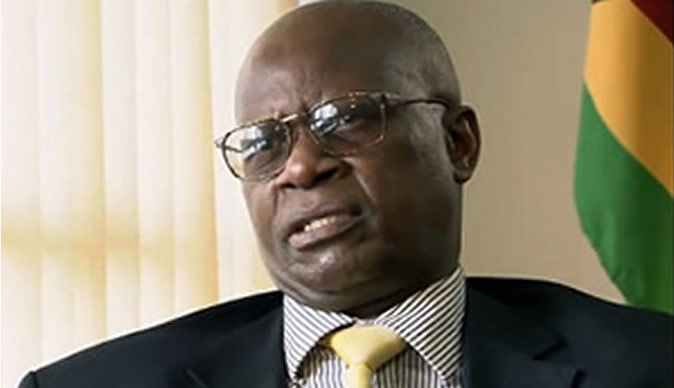 THE MINISTER OF FINANCE AND ECONOMIC DEVELOPMENT (HON. CHINAMASA): Madam Speaker, it is always my rare privilege to educate the Hon. Member on – [HON. MEMBERS: Inaudible interjections.] – before I come to specifically answer the question raised by the Hon. Member, let me explain in brief the background. The background is that we are a unique country on the continent and in the world, one of only three countries which has no currency of its own. The other two countries are Panama and Ecuador.
THE MINISTER OF FINANCE AND ECONOMIC DEVELOPMENT (HON. CHINAMASA): Madam Speaker, it is always my rare privilege to educate the Hon. Member on – [HON. MEMBERS: Inaudible interjections.] – before I come to specifically answer the question raised by the Hon. Member, let me explain in brief the background. The background is that we are a unique country on the continent and in the world, one of only three countries which has no currency of its own. The other two countries are Panama and Ecuador.
Now, what that means is that we have lost the power of seigniorage, we cannot print money. We have again in a very unique way been using the US dollar not just for imports but also to finance domestic transactions. Like I have said on other occasions, tinoshandisa maUS dollar, foreign currency reserve, kutenga mazhanje, madora, mbeva, ipwa ne matomato. Other countries build vaults to keep the foreign currency reserves in US dollars because a US dollar currency is a global currency. If you have US dollars now, you can drop anywhere in the world and you will be able to use the US dollars, it will be acceptable. No other currencies match that quality.
Now in our case, we went into challenges to do with appreciation of the US dollar and precipitous fall of the South African Rand, our major trading partner. What that meant was that we became an expensive tourist destination, an expensive producer and this was exacerbated by the fact that when we migrated from the ZIM dollar, we migrated with hyper-inflationary figures into the US dollar domain.
Now, in order to address all those challenges, we decided that we should incentivise exporters. Why we are incentivising exporters is because our only two sources of foreign currency as we are, is only exports and diaspora remittances. Diaspora remittances are not coming in a structured way. So we have to fall back more primarily on exports. So, we need to incentivise exports. We are saying if you export US$100 worth of goods, we give you US$5 and we then issue bond notes relative to the volume of exports that are being generated.
I want you also to understand Hon. Member, through you Mr. Speaker, that another challenge we faced was that the US dollar being a foreign currency reserve currency, is now commoditized meaning people do not look at it as a medium of exchange. They look at it as an asset which they keep under the pillow, in drawers and so forth. When we introduced the US dollar, we meant it to be a medium of exchange. Now if money is being withdrawn and not being deposited, it means that there is no money in circulation and the circulation of money is what makes an economy. If money is not circulating, it means business transactions cannot be undertaken.
So, the measures that we introduced are intended to boost exports through the incentive of issuance of bond notes. The point you made about the return of the ZIM dollar, ZIM dollar is not coming back until certain micro-economic fundamentals are met. We need to build reserves before we can consider bringing back the ZIM dollar. We need to expedite parastatals reform; we need to address the issue of the current account deficit, and we also need to address the issue of the fiscal deficit. We need to address the proportion of the wage bill within the framework of the revenues. When some of those macro-economic fundamentals are addressed, the import bill which we were addressing not so long ago – when all those things are addressed, we can then be in a position to say that we are considering the return of the ZIM dollar but not now.
For now, it is a multi-currency basket and we are taking measures to boost and strengthen the multi-currency regime and to this end, we have issued out directives to all Government departments, all parastatals which offer goods and services to say that they must accept payment of services and goods in any currency which is in the basket. We hope that through this measure we can have a balance of other currencies competing within the sector – [AN. HON. MEMBER: Mari ichawanikwa rini?] – Mari iriko kumabanks, kune US$6.2b in deposits, if you did not know that – [HON. MEMBERS: Supplementary.] –
(769 VIEWS)






0 Comments